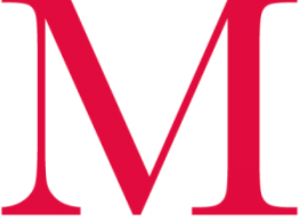Lecturer Christine Cupaiuolo did not shy away from controversial topics such as abortion, contraception and the 2016 presidential campaign at her lecture “A Return to Mad Men: The (Presidential) Politics of Gender & Women’s Health” at the Aloysius P. Kelley, S.J., Center on Thursday, March 31.
Cupaiuolo, who is the managing editor of the 2011 edition of the esteemed book about women’s health, “Our Bodies, Ourselves” spoke of the importance of considering women’s health rights during the 2016 presidential campaign.
Approximately 120 people, both Fairfield community members and visitors, attended the event. The audience was generally pleased with the open conversation from both sides of the issues.
“The feedback I got was from students who were extremely excited about [the event] and who thought that this was a very different kind of presentation for Fairfield to have because it was so overtly political,” said Associate Professor of History Anna Lawrence, who is co-director of the Women, Gender & Sexuality Studies program which hosted the lecture.
“I think that was refreshing for a lot of students who feel like maybe we don’t entertain such controversial things generally,” she continued. “But Fairfield can do that because Fairfield has that possibility, and I think we are very proud of Fairfield for being able to host something that is a tough topic and something that people can have a really good open dialogue about.”
Senior Gabrielle Ambrose, a Women, Gender & Sexuality Studies minor, was also pleased with the open conversation at the event, and commented, “Women’s health is a very important topic for me, not only because I am a woman, but because it involves the well-being of humans as a whole. It saddens me that it is still considered taboo in our society to have open conversations about issues like women’s reproductive health,” adding that having more open discussions about women’s health will help to further educate people on this topic.
Lawrence added that those in attendance created a safe space to discuss topics like abortion for the first time, which allowed for a civil conversation from both sides of the issue. “I’m impressed by the students and their ability to ask very brave questions when they know they’re speaking to someone who has a different opinion,” Lawrence said.
Associate Professor of English Emily Orlando, co-director of the Women, Gender & Sexuality Studies program, spoke of the title of Cupaiuolo’s presentation, which was taken from the AMC television drama “Mad Men,” which takes place in the 1960s.
“By virtue of calling it ‘A Return to Mad Men,’ she is sounding a bell that suggests that in 2016 we are on the verge of possibly retreating to a time when women had little voice or control over their bodies,” Orlando said. “These issues are critical and people want to talk about it.”
Cupaiuolo, who spoke in great depth about the 2016 presidential election, stated, “There are a number of urgent issues, ranging from economic inequality and the environment to human rights worldwide. Also, their vote matters. [After my lecture], I hope that students have a better understanding of how politics shape access to healthcare, and why reproductive justice is an important issue in this election.”
Cupaiuolo spoke about comments made by Ted Cruz about abortion, along with the more recent scandal associated with Donald Trump’s comment to Chris Matthews in an interview in which he said that women who get abortions should be punished if abortions were to be made a crime.
These segments of the lecture seemed to be particularly moving for Sarah Dubissette ’17.
“I think it’s important to be involved in politics because as we saw in the lecture Republican politicians are undereducated on the topics of abortion and contraception,” she said. “So, we definitely need to take presidential elections seriously and learn about a politician’s stance on all issues to elect a person that will be for us, not against us.”
Senior Kerri Moffatt echoed the sentiment, commenting, “The lecture showed exactly how dire some of these situations are getting as funding to Planned Parenthood is severed and clinics for women are run out of business due to ridiculous regulations.”
Orlando, who spearheaded the lecture, has an optimistic opinion of the culture of women’s rights on campus.
“In many different ways, the interdisciplinary minor itself is thriving,” she said. “I’ve been here for about nine years, and in that time, we have never had as many as we do now,” Orlando said, noting that 45 students currently have the minor. “That number affirms to me that people want to talk about women, gender and sexuality. It’s the climate, especially in light of the presidential election. The minors themselves are politically and socially conscious and engaged in a lot of community efforts.”
Along with Cupaiuolo’s lecture, for Women’s History Month, WGSS will screen the documentary “Miss Representation” about women in power on April 7. There will be a panel on women in science, technology, engineering and mathematics on April 14 and various other lectures and discussions.
Lawrence, who spoke on the programming for Women’s History Month, was particularly impressed by the involvement of students who are not associated with the Women Gender & Sexuality Studies program.
According to Lawrence, “Students and other faculty outside our program are taking it upon themselves to provide programming for this month, which is one of the more remarkable things that we’ve had happen recently.”


Leave a Reply